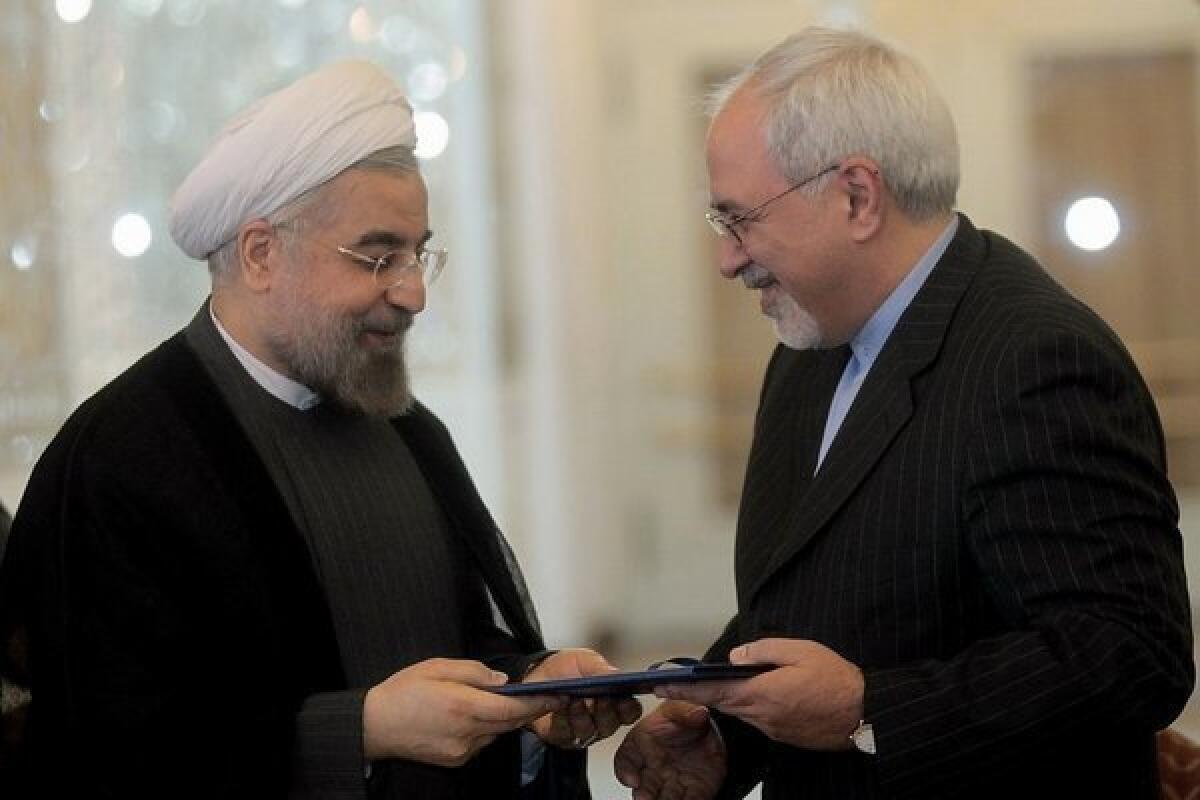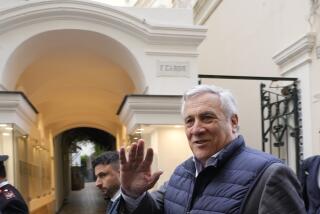European court voids EU sanctions against some Iranian firms

LONDON — A regional court Friday struck down sanctions imposed by the European Union against several Iranian companies, dealing a blow to Western efforts to maintain economic pressure on Tehran over its controversial nuclear program.
The European general court rebuked the EU for relying on what it said was insufficient or inconclusive evidence as a basis for slapping restrictions on a group of Iranian financial, export and construction companies. The firms had appealed their placement on the EU’s blacklist, which led to the curtailment of their business in Europe and the freezing of their assets.
Such sanctions have been Europe’s preferred tool for putting pressure on nations such as Iran and Syria whose governments the EU believes to be in violation of international norms. As the world’s largest trading bloc, the 28-member EU considers its economic leverage a key component of its diplomatic strategy.
In the case of Syria, sanctions against companies and individuals associated with President Bashar Assad appear to have had little effect on his repressive regime.
Regarding Iran, the measures, in conjunction with similar restrictions imposed by the United States, have been credited with hurting the Iranian economy and increasing popular discontent with the government.
Hundreds of Iranian companies and individuals remain on the economic blacklist. But Friday’s court ruling nullifying the sanctions against seven firms and one person could herald other successful appeals by Iranian entities that feel they have been wrongly targeted.
The court said European authorities had not proved that the companies -- including Post Bank Iran, Iran Insurance Co. and Iranian Offshore Engineering & Construction Co. -- were involved in nuclear proliferation. However, the trade and financial restrictions will not be lifted for another two months to allow EU officials time to appeal the annulment to the European Court of Justice.
The recent election of a centrist as president in Iran, Hassan Rouhani, has buoyed hopes that a solution to the diplomatic impasse over Tehran’s nuclear program can be reached.
Catherine Ashton, the EU’s top diplomat, said on a visit to Lithuania on Friday that she had been in contact with Iran’s foreign minister, Mohammad Javad Zarif, three times in the last few weeks. Zarif’s ministry has been charged by Rouhani with representing Tehran in nuclear talks with the EU and the United States.
“We are ready to come very quickly to discussions,” Ashton said. “We’ve got some good proposals on the table. We are always willing to listen to good proposals from Iran. We really want to move now quickly to resolve this.”
Ashton said she would try to set a date for negotiations when she and Zarif meet on the sidelines of the United Nations General Assembly later this month.
ALSO:
Obama, Putin meet at summit despite tensions over Syria
U.S. draws down diplomatic presence in Lebanon and Turkey
What will the St. Petersburg G-20 summit be remembered for?
Twitter: @HenryHChu
More to Read
Start your day right
Sign up for Essential California for news, features and recommendations from the L.A. Times and beyond in your inbox six days a week.
You may occasionally receive promotional content from the Los Angeles Times.







